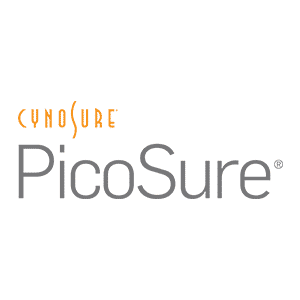Probiotics are something we have all heard of and we are told that they are good for us. But understanding Probiotics can be confusing.
What are Probiotics?
A Probiotic is defined as a live microorganism (bacteria or yeast) which when administered in adequate amounts confer a health benefit. Probiotics are found in certain foods, notably yoghurt and fermented foods, but can also be purchased as a supplement in capsule form.
There are many types of Probiotic bacteria and these are described by 3 terms namely Genus, Species and Strain. For example, Lactobacillus acidophilus La-14, where Lactobacillus is genus, acidophilus is species and La-14 the strain of the bacteria.
These technical terms are much like describing a family tree, where
- Genus is the extended family, all with fairly general mutual traits
- Species are like immediate family members such as siblings, who are similar but with different abilities
- Strain is like an individual person unique in some properties whilst remaining recognisable as a family member
The two other similar terms that you may have heard as well are Prebiotic and Synbiotic. Prebiotic refers to food ingredients that increase the activity of good bacteria, they are non-digestible and are found in foods such as bananas, asparagus, onions, garlic, artichokes and wholegrains. The term Synbiotic is a newer term that is being used to refer to products that contain both Probiotics and Prebiotics.
How can Probiotics be helpful?
Living in your gut are 100 Trillion bacteria from over 500 species. These bacteria are not only critical for digestion, but also produce vitamins, destroy harmful pathogens and benefit many aspects of health, including control of certain immune cells, help to manage the body’s inflammatory pathways which can influence many chronic conditions including skin diseases and even influence brain function including mood and memory.
Probiotics add more healthy bacteria to the gut which can help support the normal gut microbiome and help correct imbalances. There is good evidence Probiotics can help maintain a healthy gut and support immune function. Probiotics can aid digestion, ease bloating and reduce gas. They can have a very important role in preventing bowel problems when on antibiotics and reducing the duration of infective diarrhoea. Probiotics can also help treat many inflammatory conditions, not only in the bowel but throughout the body, including the skin such as Rosacea. There is even some evidence that certain Probiotics can improve mood and brain function.
The problem is that the findings of clinical trials that have demonstrated health benefits from taking Probiotics can not immediately be extrapolated to assume all Probiotics can give that benefit. Probiotic effects in a clinical trial from a specific formulation and dose of Probiotic should not be generalised to be a benefit of all Probiotics. It is also not just a matter of having as many different Probiotics as possible, as different strains of Probiotics may enhance or negate the effects of each other.
Natural Probiotics
The main natural probiotic that people take is Yoghurt. Yoghurt is made by fermenting milk with bacteria strains usually Lactobacillus acidophilus, Lactobacillus bulgaricus or Streptococcus Thermophilus. If you take Yoghurt, then unsweetened with a lower sugar content is a healthier choice. Most people take Yoghurt in the morning with fruit as a breakfast food. Bananas (especially greener) are a particularly good fruit to have with Yoghurt as they have prebiotic activity (meaning they help probiotics in the yoghurt thrive in the gut).
If someone has a dairy allergy, then alternatives to milk-based Yoghurt are Almond Yoghurt or Coconut Yoghurt which are readily available at supermarkets.
Natural Probiotic alternatives to Yoghurt are Kefir (cultured milk drink) or fermented foods (such as Sauerkraut, Kimchi, Kombucha fermented tea, olives, artichokes, Apple cider vinegar).

Probiotic Supplements
There are many companies that produce Probiotic Supplements which are sold by Pharmacies and Health food suppliers. There are many different formulations and it can be confusing to say the least to work out which is the most appropriate Probiotic Supplement to take. Different Probiotic strains support different functions and specific strains are needed to address specific problems.
As a consumer buying Probiotic Supplements, unless a healthcare professional has specifically recommended a certain brand and formulation, or you have researched and remember which species and strains have been proven to help with what condition, it can be very confusing.
However, there are a few general points that can help in choosing a Probiotic Supplement:
Brand: The brand is important as the quality of Probiotic Supplements varies significantly between brands. It is best to choose an established and reputable company. Eg. Blackmores. Bioglan, Metagenics, Swisse.
Composition: Diversity is the key, and the best probiotics typically contain several different species. The 2 main Probiotic bacteria that you want to look for are the Lactobacillus (L) and the Bifidobacterium (B). There are many different species and strains of each of these which can provide different benefits. L.acidophilus, L.plantarum and B.longum are 3 of the most important strains to look for on a Probiotic label as they can help modulate the immune system and counter infections in the gut.
Quantity: The quantity of bacteria in a Probiotic Supplement is measured in terms of CFU (which stands for Colony Forming Units) and is in the billions. Dose does depend on which Probiotic is being used but typically at least 10-15 billion CFU are needed. It is best if the Probiotic dose is guaranteed at date of expiration not date of manufacture.
Cost: Choice of a Probiotic should not purely be on price as quality and quantity makes a big difference with Probiotics. When looking at the cost of a Probiotic also consider the cost per Billion CFU in each capsule, ie cost of a 2 Billion CFU/capsule is very different to a 30 Billion/CFU capsule.
Packaging: It is best to choose a Probiotic that does not require refrigeration as refrigeration is another variable that can potentially reduce potency. In Australia, most Probiotics are sold in a bottle rather than individual blister packs.

Probiotics are a supplement not a substitute
Whilst Probiotics can be a valuable addition to your daily diet people should not think that they can just take a Probiotic each day and neglect the rest of their diet. Probiotics are part of a healthy diet and for an optimal gut microbiome you should have a diet rich in vegetables, wholegrains and fruit with minimal sugar and processed foods as well as a healthy lifestyle of exercise, avoiding smoking and minimal alcohol.
At the Collins Cosmetic Clinic, our main focus is your skin health and treating skin and cosmetic conditions however we are a medical clinic run by doctors and your overall health and well being are also very important to us. We are happy to provide any advice we think can help our patients. We will be following up this general article on Probiotics with more specific advice on how Probiotics can protect your gut if you need to take antibiotics and which Probiotics can help your skin health. If you have any questions related to Probiotics feel free to contact us by email on contact@colliscosmeticclinic.com.au













